
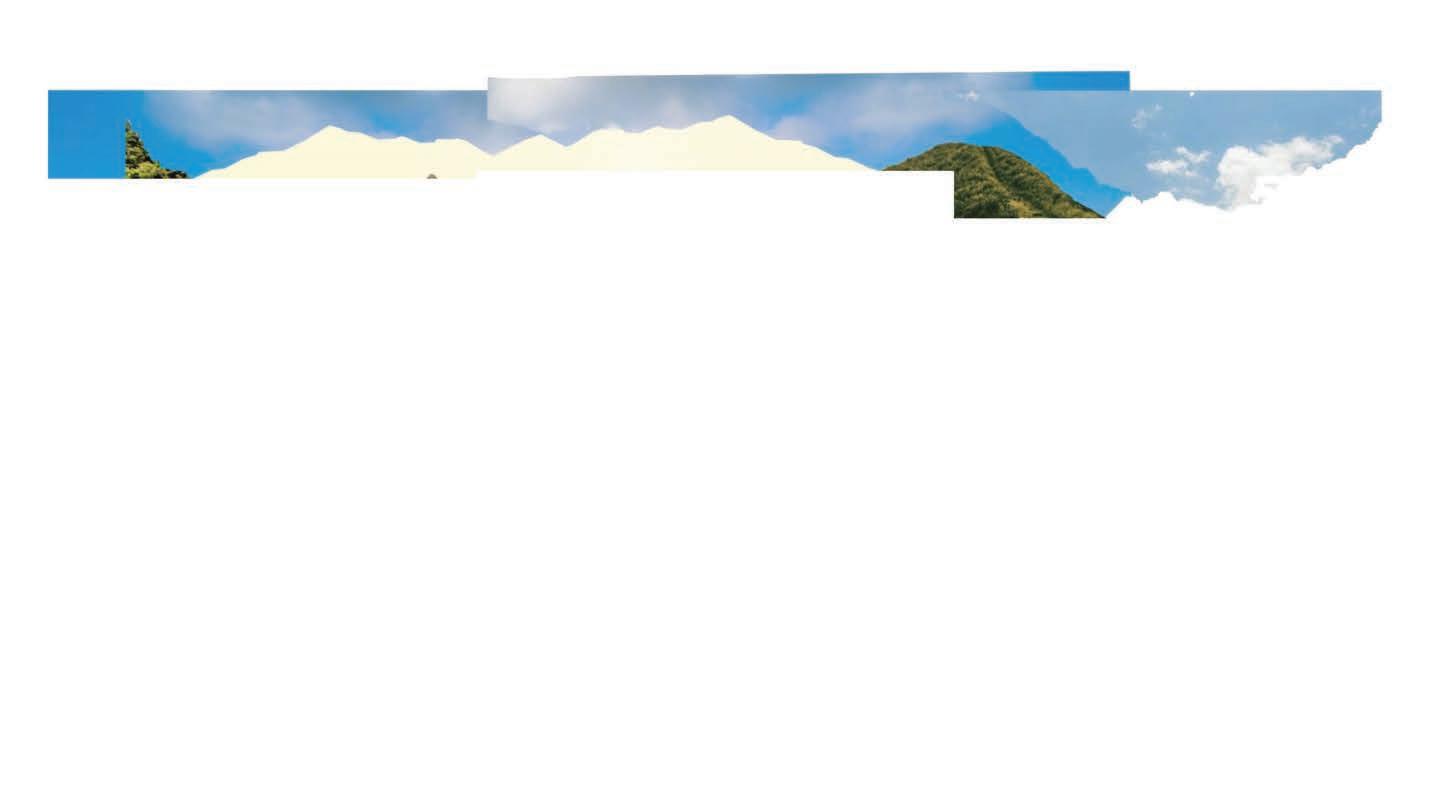





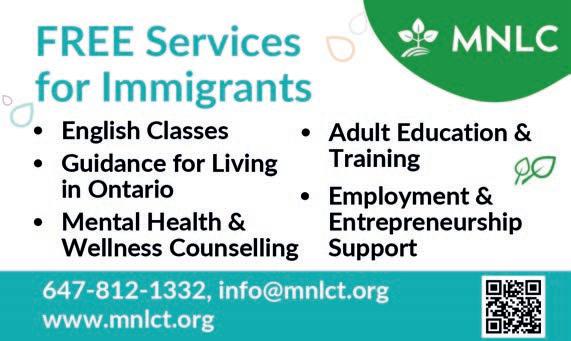










Publisher Sanjay Agnihotri
Editor Baisakhi Roy broy@metroland.com
Editorial Design Safi Nomani
Brand Manager Ricky Bajaj rbajaj@metroland.com Tel: 416 856 6304
Assistant Manager Laura Jackman ljackman@metroland.com
I nterns
Nadirah Sukhram Varsha Vijayarajah
General Inquiries: info@canadianimmigrant.ca
Circulation/Distribution Inquiries: ljackman@metroland.com
ISSN 1910-4146
Opinions expressed do not necessarily reflect the opinion of the publisher
Publications mail agreement number: 40065097
Canadian Immigrant is published four times a year in print.
Canadian Immigrant welcomes submissions, but is not responsible for unsolicited material.
Canadian Immigrant is a publication of Metroland Media Group, a division of Toronto Star Newspapers Limited. Entire contents property of Canadian Immigrant. canadianimmigrant.ca
HEAD OFFICE
211 Pritchard Road, Unit 4 Hamilton, Ontario L8J 0G5 Tel: 905 273 8111


For Nizar Ladak, scars are more than reminders of past pain; they are a roadmap for leadership, resilience and personal growth. In his debut book, The Power of Scars: My Journey from Refugee to CEO, Ladak shares a deeply personal story that connects his harrowing childhood fleeing Idi Amin’s Uganda with his rise to leadership in Canada’s corporate world.
The memoir offers an unflinching look at how early adversity shaped Ladak’s approach to leadership and life. Combining storytelling with practical lessons, Ladak’s book is part memoir, part guide for immigrants navigating challenges in a new country.
Ladak came to Toronto as a child refugee in the 1970s and faced the trauma of starting over. One defining moment he recounts is the racial abuse he endured at
school. “The teacher beat me and hurled racial slurs at me because I couldn’t recite the twelve times tables,” he writes. “Teachers were who we were supposed to turn to, so what do you do when they’re the ones hurting you?”
Decades later, Ladak says this shaped his values as a leader. “When I managed a team, I wanted to be the opposite of that teacher. I felt a responsibility to protect, support and champion my people.”
Named one of Canadian Immigrant’s Top 25 Canadian Immigrants in 2019, Ladak is widely respected for his work in health care and post-secondary education and was recently awarded the University of Toronto’s Leaders and Legends Distinguished Service Award.
The book also highlights the leadership principles Ladak developed over his 33-year career, including two tenures as CEO. He outlines six conditions for resilience — from building strong connections to taking decisive action — drawn from
his own life.
His advice for newcomers is clear: “You’ve already shown resilience by starting over here. Hold on to that. Your scars don’t define your limits; they reveal your strength.”
His hope for the book is simple. “I want newcomers to know they’re not alone. This isn’t just my story, it’s an invitation to see your own scars as your power.”
The Power of Scars: My Journey from Refugee to CEO is out in bookstores and online.
By Baisakhi Roy
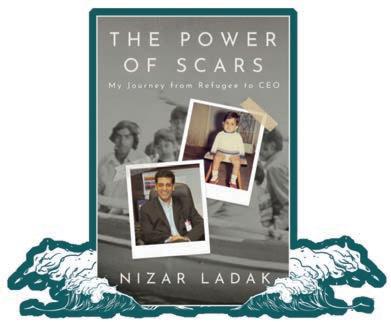
A new federal initiative is opening up Canada’s natural and cultural landmarks to more people this summer — especially newcomers and youth. The Canada Strong Pass, launched in June by the federal government, offers free and discounted admission to national parks, museums, historic sites, and VIA Rail travel through September 2, 2025.
The program was designed with accessibility and inclusion in mind. No registration or proof of status is required, which removes barriers that often deter newcomers from accessing government services. “You do not need to prove anything,” said Minister Rechie Valdez, who leads the portfolio of Women and Gender Equality and Small Business and Tourism. “You just show up — and the experience is yours.”
The pass includes free admission for children under 18, discounted VIA Rail tickets for youth aged 18 to 24, and 25 per cent off select camping sites, making it an affordable way to explore the country. It’s part of a larger effort to help newcomers feel more connected to
Canada, both geographically and culturally.
“For many newcomer families, adjusting to life in Canada means putting travel and leisure aside,” Minister Valdez said. “So, we created the Canada Strong Pass to remove those barriers and Continued on page 6

The Canadian Immigrant career fairs continue to be a vital hub of information, support, and opportunity for newcomers across the country. This summer, successful events in Toronto, Halifax and Winnipeg welcomed thousands of immigrants eager to build their careers and lives in Canada.
The Toronto fair, held on June 27, drew a lively crowd of newcomers exploring resources from post-secondary institutions, settlement agencies, career advisors and employers. For many, it was a first visit, for others, a trusted annual stop. “Every time I come, I learn something new,” shared Shireen Khan, an attendee from India.
Highlights included a packed panel on “Future-Proofing Your Career,” with international student mentor Ritika Saraswat and Kareem Aboulnaga, partner at a top Canadian consulting firm offering actionable advice on personal branding, networking and owning one’s difference in the Canadian workplace. COSTI’s Gaurav Vaid conducted an engaging session on crafting Canadian-style resumes while the afternoon’s policy panel tackled immigration challenges head-on. Panelists Wendy Cukier, professor of Entrepreneurship and Innovation at the Ted Rogers School of Management, Shamira Madhany, Managing Director, Canada & Deputy Executive Director, World Education Services (WES) and Elizabeth Long, leading immigration lawyer and partner at Long Mangalji LLP, shared insights from their years of work in research, advocacy, and immigration law.
When asked what they would say if they had the Minister of Immigration’s ear, their responses struck a common chord. Madhany stressed the urgent need for a centralized credential assessment body within the federal

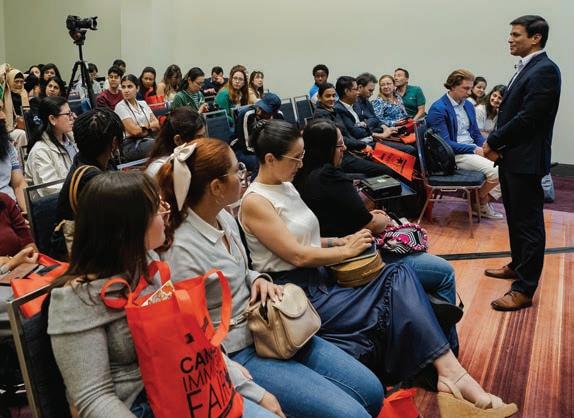
government. “We can’t keep squandering the potential of immigrants we’ve already invited into the country,” she said. “We need to work together, across government and communities, to ensure people aren’t forced out simply because they can’t ‘Canadianize’ their resumes fast enough.”
Halifax and Winnipeg events also saw enthusiastic participation, with newcomers connecting to local opportunities and attending informative sessions tailored to their needs. From resume clinics to real talk on immigration policy, each fair offered inspiration and tangible next steps. Despite ongoing challenges in the immigration system, the fairs underscored one truth: newcomers are ready to contribute — they just need a fair shot.
More opportunities are on the way. Our fairs are headed to Calgary, Edmonton, Vancouver and Mississauga. Don’t miss your chance to connect, grow, and be heard.
Mark your calendar and check details at www.canadianimmigrant.ca/ careerfair
Continued from page 4 give families, especially youth, a chance to explore their new home without the financial burden.”

Most importantly, this pass allows newcomers to create new memories, bond with their peers and embrace Canadian heritage. “When families travel across Canada, they’re not just seeing new places – they’re learning about Indigenous cultures, Canadian history and natural beauty”, says Minister Valdez. “This sense of pride and discovery builds stronger communities and helps newcomers feel like they truly belong.”. The pass will also help small businesses and boost employment for newcomers. "While supporting our very own, this will supply jobs and will encourage purchases to small businesses across the country. Whether you’re buying lunch in a small town or staying at a campsite, you’re contributing to our community," she said.
More details on the pass and participating sites are available through Canada.ca
By Nadirah Sukhram

Build English skills, industry knowledge and workplace readiness needed to succeed in the Canadian job market. Get the skills you need to succeed at work
Join COSTI’s ELT programs if you have international experience in Accounting & Finance, IT, Education, Healthcare, Administration, STEM, Trades or Transportation.
these QR codes to
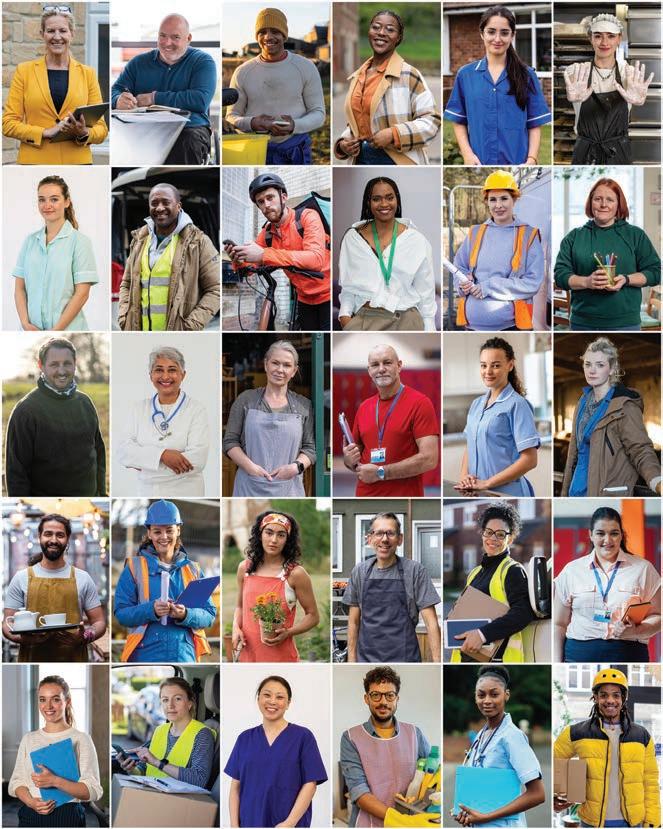






Sharing their stories is sharing the story of Canada
With nation-building and Canadian pride on people’s minds across the country, we can’t forget that the story of Canada includes the stories of immigrants who have helped build this nation. For the 17th year, Canadian Immigrant, with the support of presenting sponsor Western Union, is recognizing and celebrating 25 of them with the Top 25 Canadian Immigrant Awards of 2025.
The Top 25 Canadian Immigrant Awards, also supported by COSTI and Edward Jones, is the first and only national awards program celebrating immigrant success stories from coast to coast. This year’s Top 25 join an inspirational list of past recipients who are community, culture, scientific and business leaders. Three are also chosen for the extra distinctions of Youth Award, COSTI Entrepreneur Award and the inaugural Edward Jones Leadership Award.
The winners were selected after an extensive nomination, judging, shortlisting and public online voting process. Congratulations to the 25 recipients as well as all 75 finalists and thank you to our panel of judges made up of past winners: Delasi Essien, Kelly Kaur, Chukwunonso Nwabufo, Andre Smith and Nadine Williams.
Now, let’s discover this year’s Top 25!

When Duaa Al-Aghar first arrived in Canada from Iraq in 2006, she brought along a deep anxiety about losing her identity as a Muslim woman. “I worried that I would have to change who I am to be accepted, to fit in. But I was wrong. Canada didn’t ask me to let go of my faith or values — instead, it gave me the space to embrace them more proudly.”
Nearly two decades later, her identity is her greatest strength — and a
in services for vulnerable populations.
“I know what it feels like to arrive with nothing but hope. I want to be the person I once needed,” she says. “There were moments when giving up felt easier — when the challenges of starting over in a new country, raising a family and navigating unfamiliar systems felt too heavy. But resilience helped me turn obstacles into opportunities and pain into purpose.”
Today, Al-Aghar is a recognized advocate



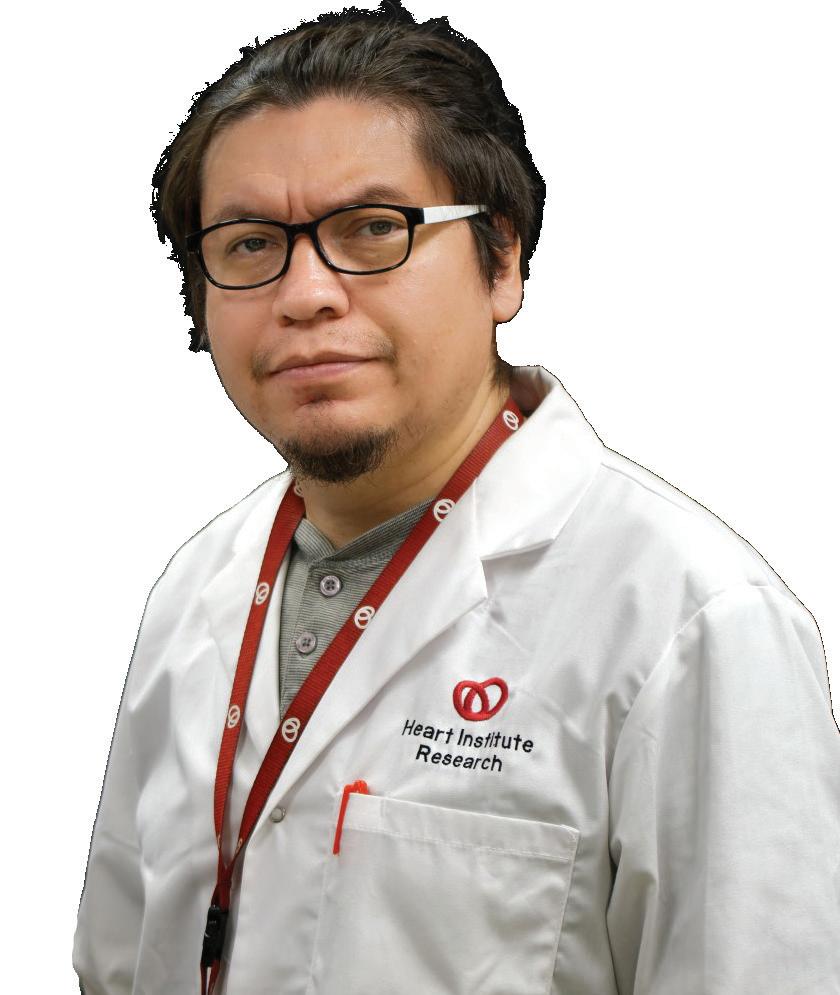
Emilio I. Alarcón, PhD, didn’t have an easy start to life. Born and raised in poverty in Chile, access to education was limited, especially as a child with autism with a disabled parent. It’s been a long journey to where he is now — a University of Ottawa associate professor, assistant dean and graduate program director at the University of Ottawa Heart Institute, and chemist developing lab-made tissues using peptides to heal damaged organs and tissues.
Alarcón is a healer. His early struggles inspired his desire to help others, both as a scientist and an advocate dismantling barriers for others. “I find immense joy in sharing my knowledge, culture and lived experience with the next generation,” says Alarcón, who received the Early Career Investigator Award from the Canadian Biomaterials Society in 2024, and awards recognizing his advocacy and research from the University of Ottawa’s Faculty of Medicine in 2023 and 2022.
As chair of a working group on ableism and disabilities dialogues at the Royal Society of Canada, he
Fear of the unknown was a big challenge for Nigerian-born Aloysius C. Anyichie, PhD, upon arriving in Canada as a missionary and international student. “I arrived in a new country where I knew no one, armed only with hope, determination and faith,” he says. The blast of -35 °C weather that hit him as he stepped out of the Saskatoon airport shook his resolve just a little.
“Even my eyelashes felt cold! I considered running right back inside,” says Anyichie, who is today associate professor of educational psychology at Brandon University in Manitoba. “It was a true Canadian winter experience, which I jokingly call my ‘baptism of snow.’”
That’s a fitting description considering Anyichie is a Catholic priest in addition to being an academic.
“Next came the culture shock, from a different way of learning in the classroom to daily social norms,” he says. “Despite the challenges, I became stronger. My unshakable faith in God has been both an anchor and a compass on this journey, shaping the educator and advocate I am today.”
Anyichie is renowned for his groundbreaking research on supporting culturally diverse students’ engagement, which has received multiple prestigious awards globally and is documented in his 2024 book Self-Regulated Learning and Culturally Responsive Pedagogy
Along with the awards have come several grants for his research, most recently the Insight Development
Research Grant from the Canadian Social Sciences and Humanities Research Council.
“Grants support my research on a model I developed, the Culturally Responsive Self-Regulated Learning Framework, which combines self-regulated learning principles with culturally responsive pedagogy to boost student engagement, motivation and academic achievement, especially in diverse educational settings,” he explains.
Anyichie has also previously taught at the University of British Columbia, his alma mater, and Bishop’s University in Quebec, and now serves as director of global engagement at Shanahan University, Onitsha in Nigeria.
Beyond the classroom, Anyichie founded Loy Excellentia Initiative, a non-profit organization that offers mentorship opportunities for students and professionals of African descent.
“I wear several hats, but at the core of all I do is one mission — to educate, empower and uplift others, whether in a classroom, church or community.”
seeks to build more inclusive and accessible spaces for all. Through his INTBIOTECH training program, he helps people from non-typical backgrounds discover their scientific potential.
“I work for increasing the representation of persons with disabilities in biomedical and medical research,” he explains.
“In Canada, nearly 30 per cent of the population lives with a disability, a number estimated to further increase in the years to come. Thus, we must do more to develop and implement systems and processes created with an accessibility mind-setting.”
Alarcón also advocates for his own son. In 2011, three years after coming to Canada, he and his wife welcomed Alonso, who was born with Down syndrome, autism and a hole in his heart, and later diagnosed with leukemia. Now 13 years old, Alonso is a constant reminder of the gift of time Alarcón works so hard to give others through his research and advocacy.
“Canada gifted me with extra time with my son, a gift I’ll cherish forever,” he says. “My son is my guiding light, the one who has humbled me and taught me the true meaning of unconditional love.”



Mike Borlongan can’t remember a time he didn’t love basketball. As a standout player in his youth in Manila, Philippines, he earned a university basketball scholarship and was a member of the 19881989 Philippines NCAA championship team!
The athlete then moved to Canada, where he is now a happy family man, married with two children living in Milton, Ontario. Over the last 30 years, Borlongan has built a successful career as a consultant in the architectural hardware industry, working with major architectural firms on large-scale projects around the world.
But it was his background in basketball that laid the foundation for his commitment to his community. In 2007, he founded the Milton Stags Basketball Club, a nonprofit youth organization affiliated with Canada Basketball, Basketball Ontario and the Town of Milton.
“What began as a small initiative with just 12 kids has now grown into

a thriving program with more than 15,000, past and present, young athletes,” he explains. Under his leadership, the Milton Stags has produced athletes who have gone on to play in the NBA, NCAA and top Canadian universities.
But his vision was never just about basketball — it was always about character development and community leadership.
“Sports stand out as the driving force behind my own success, channeling my hard work and giving me patience toward clear objectives,” he says. As the Milton Stags’ volunteer coordinator and coach, Borlongan inspires youth, proving that sports can be a powerful tool for growth.
“I have the privilege of guiding young athletes in their journey of growth and development,” he says. “It brings me immense joy to see them not only succeed on the court but also grow into responsible, respectful citizens who positively contribute to our community.”
Now he wants to create more opportunities for basketball in Milton. “My hope is to create a vibrant inclusive space by building multiple basketball courts where kids and families can come together to play, connect and grow at little to no cost,” he says. “My future plans involve securing funding, collaborating with local organizations and engaging community members to make this dream a reality.”

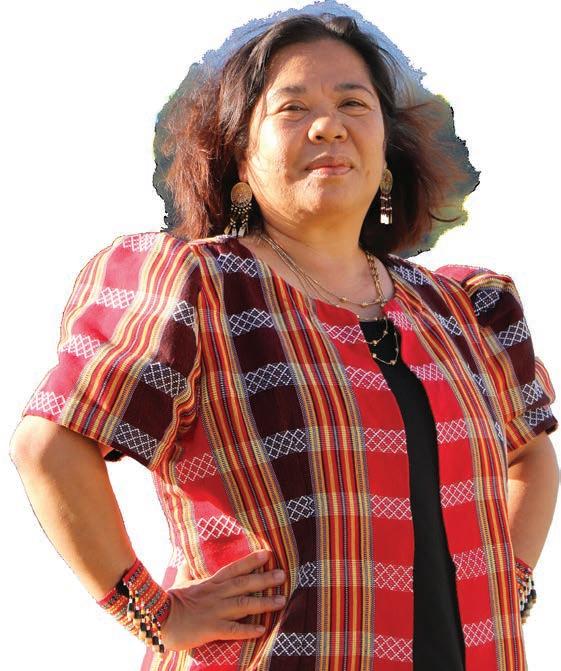
Twenty years ago, Khristine Cariño, PhD, arrived in Vancouver from the Philippines, a dentist and educator beginning a postdoctoral fellowship at the University of British Columbia. Just as her academic career was taking off, she became a mother. With no extended family or community beyond her husband, she began to face a deep sense of isolation.
“The first 10 years were challenging. As I stayed home to care for my children, I became increasingly invisible,” Cariño says.
And when she was ready to return to her academic career, she says she faced “the motherhood penalty and ageism.” Instead of letting these setbacks stop her, she spent the next 10 years in Canada building what she needed most — community.
Pivoting from academia into non-profit leadership, Cariño found her civic voice at Cedar Cottage Neighbourhood House, where she currently serves as community board chair, championing initiatives that foster belonging and economic inclusion. She is also a board director and past executive director of Mabuhay

House Society, which has been instrumental in the initial stages of a new Filipino cultural centre in B.C.
Her advocacy also turned to STEM and tech. She founded Tech2Step to create pathways for women and then all newcomers to thrive through networking, mentorship and career development.
“I founded Tech2Step to connect people to opportunities in tech because I knew the weight of isolation with no professional network to lean on,” says Cariño. “It’s a community where newcomers can grow their networks, rebuild their confidence and be part of something that sees them, supports them and grows with them as leaders in the making.”
During her own journey to making an impact — including launching East Van Kids STEM and becoming the first Filipino president of the Society for Canadian Women in Science and Technology — Cariño has come to believe in the following guiding principles.
“If no one saves you a seat, build your own table. If you feel invisible, become impossible to ignore. And it’s not enough to just belong — we must lead. When we lead, we don’t just rewrite our own stories, we help others find the courage to write theirs, too.”

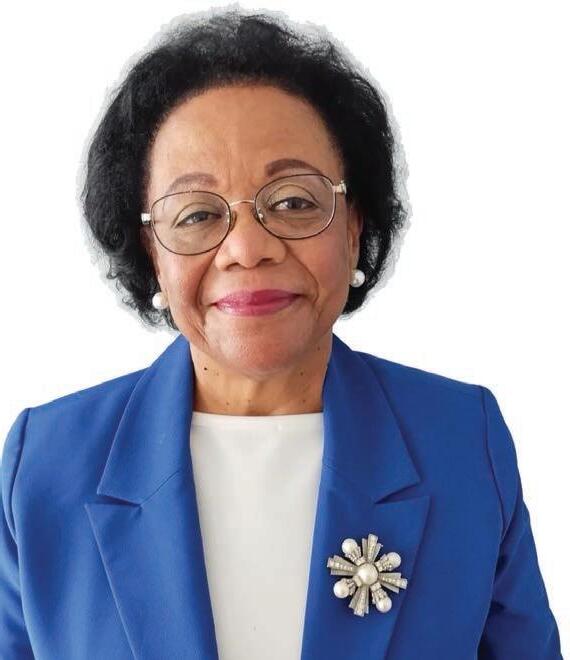
As the dean of the University of Toronto School of Continuing Studies, Catherine Chandler-Crichlow, PhD, leads the charge in supporting adult learners in their educational and career goals.
“We were established to meet the needs of adult learners by delivering expertly designed, non-degree courses,” says Chandler-Crichlow, explaining that the school has roots dating back to the 1880s.
Fast forward to the 1980s, Chandler-Crichlow arrived in Canada with a master’s in education from Harvard University, following her studies at the University of the West Indies in her homeland of Trinidad and Tobago. The lifelong learner quickly joined a doctoral program at the University of Toronto. It was an educational experience in more ways than one, opening her eyes to the barriers skilled immigrants face in the Canadian labour market.
“Given the emphasis on job gaps in Canada during the immigration process, my greatest surprise was the absence of information on career pathways for individuals who are part of non-regulated professions,”
As the co-founder and chief operating officer of medtech startup Juno Technologies, Lynn Doughane is revolutionizing menstrual pain management with an innovative, multiple patentpending medical device.
“Our device has demonstrated a 79 per cent reduction in menstrual pain in pilot studies, offering a drug-free and side-effect-free alternative,” says the 28-year-old, who came to Canada from Lebanon in 2020 to earn a master’s degree in engineering from Polytechnique Montréal.
“It’s exciting to work at the intersection of technology, science and real-world impact. I love being part of a project that can truly improve women’s health and quality of life,” Doughane says.
Under her leadership, Juno Technologies has gained international recognition, securing spots in top-tier incubators such as JLABS – Johnson & Johnson and Mayo Clinic Innovation Exchange. She is currently planning clinical trials in collaboration with Canada’s leading hospital research institution, making Juno Technologies’ device the first menstrual pain medical device to undergo hospital-backed clinical trials. To achieve these milestones, Doughane secured more than $1 million in funding from national and provincial organizations.
“Creating a business in the medtech sector as an immigrant in a country where I had no network or reference points was the biggest challenge. I had to navigate a complex system while building everything
she says. “This gap was my catalyst to intentionally manage my career.”
Chandler-Crichlow explored why obstacles for newcomers existed and how adults — born in Canada or otherwise — could improve their professional prospects through continuing education.
“I am always curious to understand how things work and I applied that attribute to understand how the workforce and employment systems work in Canada,” she says.
This curiosity helped her build a prestigious career, including as executive director of career management and corporate recruiting at Ivey Business School – Western University. She also held leadership roles promoting excellence in the financial services sector as well as determining talent needs in the transportation, telecommunications and hospitality sectors.
Chandler-Crichlow has been called upon to share her knowledge on numerous boards, including the Ontario Public Service Postsecondary Education Quality Assessment Board and as board chair for Toronto Region Immigrant Employment Council, among others.
Today, she is proudly leading more than 950 courses and programs at the School of Continuing Studies. “Our programs offer learners flexible formats, content informed by employers and industry, and an ability to adapt quickly in the marketplace,” she says.

from scratch — trust, credibility and connections,” she says. “Resilience and adaptability helped me overcome challenges and keep going.”
Outside of her work, Doughane is committed to sharing what she has learned, especially with other women in STEM. “I make it a priority to give back. I’m passionate about supporting the next generation. Over the past two years, I’ve mentored more than 20 young people through mentorship programs,” she says.
Her leadership and impact have earned her numerous awards, including the Visa She’s Next Grant, a Next Generation of Women Entrepreneurs grant from J. Armand Bombardier Foundation, the Startup Montreal Award and the prestigious Pierre Péladeau Bursary.
And Doughane is just getting started. “I aim to keep pushing innovation in women’s health by focusing on medical conditions that still lack proper attention and where research and innovation are greatly needed.”
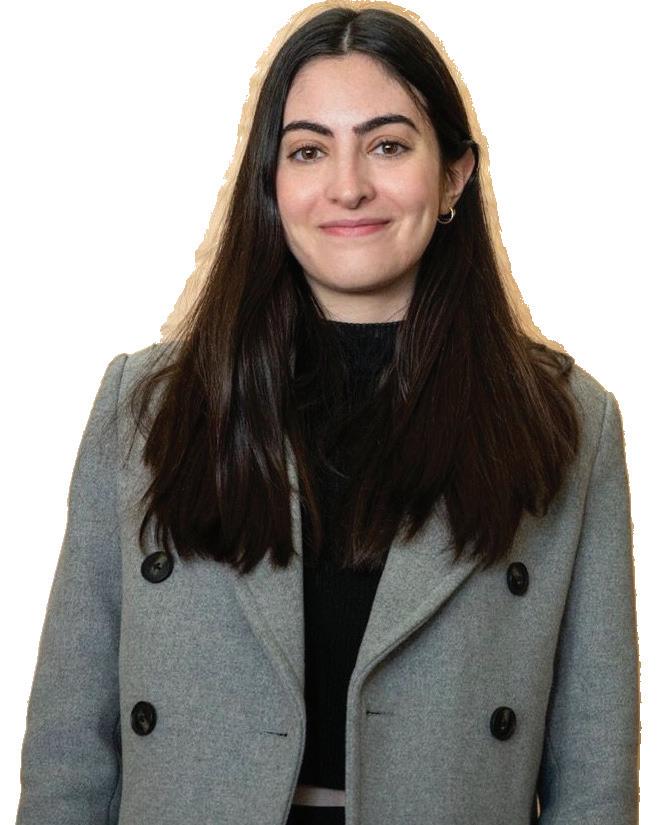
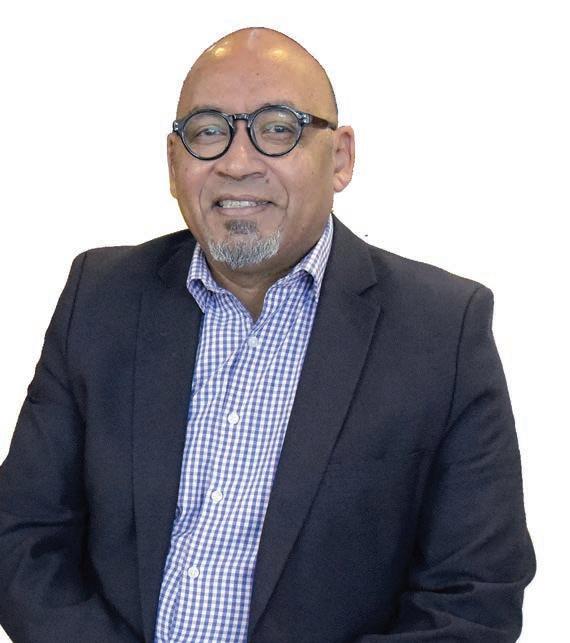
There’s a street in the Malvern neighbourhood in Toronto named “Liben Way.” It was named in 2022 in honour of Liben Gebremikael, the founding executive director and CEO of TAIBU Community Health Centre. Gebremikael has spent the last 17 years building TAIBU into a hub for Black health and community wellbeing.
“I am a social worker by background, and there is nothing more rewarding than to work with people and bring about changes in their lives, health and wellbeing,” says Gebremikael, who came to Canada from Ethiopia by way of the United Kingdom in 2005.
Under his leadership, TAIBU has become the only Black-mandated community health centre in Ontario, winning accolades like the Scarborough Hero Award and the Transformational Change Award from the Alliance for Healthier Communities. TAIBU provides innovative primary health care, health promotion and community capacitybuilding programs for the Black population in the Greater Toronto Area, Francophone communities in Scarborough
Shivani Gupta was just 13 years old when she arrived in Canada with her family from India, and culture shock hit hard. “I remember walking into my Grade 8 classroom on the first day — new backpack and a head full of nervous questions,” she says. “Over time, I found allies — teachers and friends — who encouraged me to share more about where I came from. Slowly, I found my voice again.”
But the young Gupta also recognized the importance of leaning into change. “I’ve always believed in adaptability,” she says. “Instead of resisting change, I embraced it.”
This mindset has certainly helped Gupta grow, both personally and professionally. As a director at Crown Group of Hotels, she oversees a portfolio of more than 900 hotel rooms across major global brands like Marriott, Hilton and IHG.
Gupta also has her sights set on future growth for her family’s business; she’s currently helping evaluate a 3,000-unit residential development in Ottawa, a major diversification move for Crown Group.
“I long to be a remarkable leader, entrepreneur and a trailblazer in the hospitality industry,” she reflects.
Having graduated from the University of Toronto with an honour’s degree in business administration and a master’s in human resource management, Gupta also serves as HR director at Prudent Law, a firm specializing in real estate, litigation and family law. She is also on the board for Canada
and all residents of the Malvern neighbourhood.
“TAIBU is a special organization,” Gebremikael says. “I work with the dedicated staff, community members and partners to find solutions and possibilities to address the impact of anti-Black racism on the health and wellbeing of Black Canadians.”
His passion is rooted in personal experience. “When I first arrived in Canada, I expected multiculturalism would mean an easy integration. But there was this barrier called racism that impedes the smooth integration of newcomers,” he reflects.
“Today, addressing inequalities in health and advancing the possibility for change and wellbeing is what propels me,” says Gebremikael, who is also the chair of the Ontario Health Data Council.
“Furthermore, my experience with TAIBU has helped me be available to support other emerging organizations.”
Gebremikael has helped more than 20 grassroots organizations — including GOOH and Kidy Foundation Canada — get off the ground, supporting everything from autism care to road safety in Ethiopia.
“Seeing grassroots community organizations progress to become self-sustaining forces is most rewarding.”
Gebremikael, who recently received the King Charles III Coronation Medal, adds “I truly believe that if we can all come together and work toward a common goal, we can make a difference.”
India Foundation, which fosters bilateral relations between Canada and India.
More than a head for business, Gupta is a people person. “Beyond the business side, what truly drives me is people development. I take great pride in mentoring emerging talent, especially newcomers and young professionals looking to establish themselves in Canada,” she says. “I understand what it feels like to start from scratch — to navigate uncertainty, build new roots and work twice as hard to be seen and heard.”
But Gupta also believes that Canada has given her and her family incredible opportunities. “I feel a strong personal responsibility to not only make the most of them — but to open doors for others as well,” she says.



It was 2003 when Bardia Ilbeiggi came to Canada from Iran to study aerospace engineering at Carleton University in Ottawa. A job at IBM in Toronto followed. Today, he is on the other side of his adopted country, the chef and sole owner of Delara, a modern Persian restaurant in Vancouver.
“While I was still a student, I discovered a passion for cooking,” Ilbeiggi shares. That appetite took him to culinary school in Paris and a new career as a chef. He has worked at Michelin-starred restaurant Frenchie in Paris and Relae in Copenhagen, as well as at L’Abattoir and Farmer’s Apprentice in Vancouver. He steadily worked his way through the kitchen ranks, focused on French and Pacific Northwest techniques and ingredients. Then, in 2021, Ilbeiggi decided to develop his own restaurant concept, blending his technique with his Iranian heritage.
“Four years ago, I opened Delara, an homage to my heritage — the food and culture of Iran,” he says. “It has made me realize how much it matters. It matters for my kids to know where their

father came from and what traditions he practised. It matters to represent a community with a rich history such as Iran. It gives me so much pride to know that I’m showcasing my culture to Canada on a daily basis.”
Ilbeiggi is one of the first people to apply meticulous classical cooking techniques to traditional dishes from Iran, elevating the flavours and textures to familiar yet surprising territory. Dedicated to cooking seasonally, he continues to evolve and improve Delara’s menu, with tempting dishes like Plum and Saffron Stew and Mina's Chicken and Barley Soup, inspired by his mom’s recipe.
His humble, yet sophisticated cuisine has earned Delara a spot in the Vancouver Michelin Guide. He’s now planning to write a book about Delara’s modern Persian cuisine.
“I always want to be the best version of myself,” says Ilbeiggi, a 2023 Business in Vancouver Top Forty Under 40 winner. “I want to be the best husband, father and son. I want to be the best at creating a business that makes my community and me proud.”


Marwa Khobieh left Syria for Canada at age 22, carrying the trauma of war along with a deep sense of responsibility. “Even though I was physically in a safe place, my heart and mind remained in Syria,” she says. “The guilt of being safe while so many were fighting for their rights felt incredibly heavy.”
That emotional weight fueled her passion for advocacy. Today, Khobieh is the executive director of the Syrian Canadian Foundation, a non-profit organization in Mississauga, Ontario, supporting refugees and newcomers with language training, skills development and wellbeing. Her leadership has built the foundation up from a fledgling organization into a national force — doubling its budget, launching a strategic plan and forming partnerships across government, educational institutions and the private sector.
Born in Cyprus and raised briefly in Canada before moving to Syria, Khobieh’s personal journey mirrors the struggles of the newcomers she now works to uplift. “I had to navigate the education system from scratch, rebuild my career path and adapt to a new culture, all while
Find your place in Wetaskiwin, Alberta — where homeownership starts at just $200K. Enjoy affordable living, excellent schools, and everything your family needs, all in a welcoming and connected community.
carrying the loss of people I loved back home.”
These experiences shaped her leadership style and sense of purpose.
“Witnessing the Syrian revolution, being forced to leave my home and starting over in Canada taught me to stay hopeful and resourceful — even when the path wasn’t clear. I now have the privilege of creating programs that help refugees and newcomers build a meaningful, independent life in Canada.”
What she loves most is hearing directly from participants about how much their programs have changed their lives. “Whether it’s a mother launching her own small business or a youth stepping into a leadership role in their community, witnessing these successes is incredibly rewarding.”
Khobieh also co-founded the Canadian Alliance for Syrian Aid, resettling hundreds of Syrian refugees in Montreal, and serves on the board of Molham Organization, providing aid to displaced Syrians.
Khobieh’s latest achievement is securing $1 million from the Northpine Foundation for the foundation to help internationally trained refugees gain skilled trades certification and employment. “My big hope is that every refugee has the tools to rebuild their life with confidence and dignity,” she says.




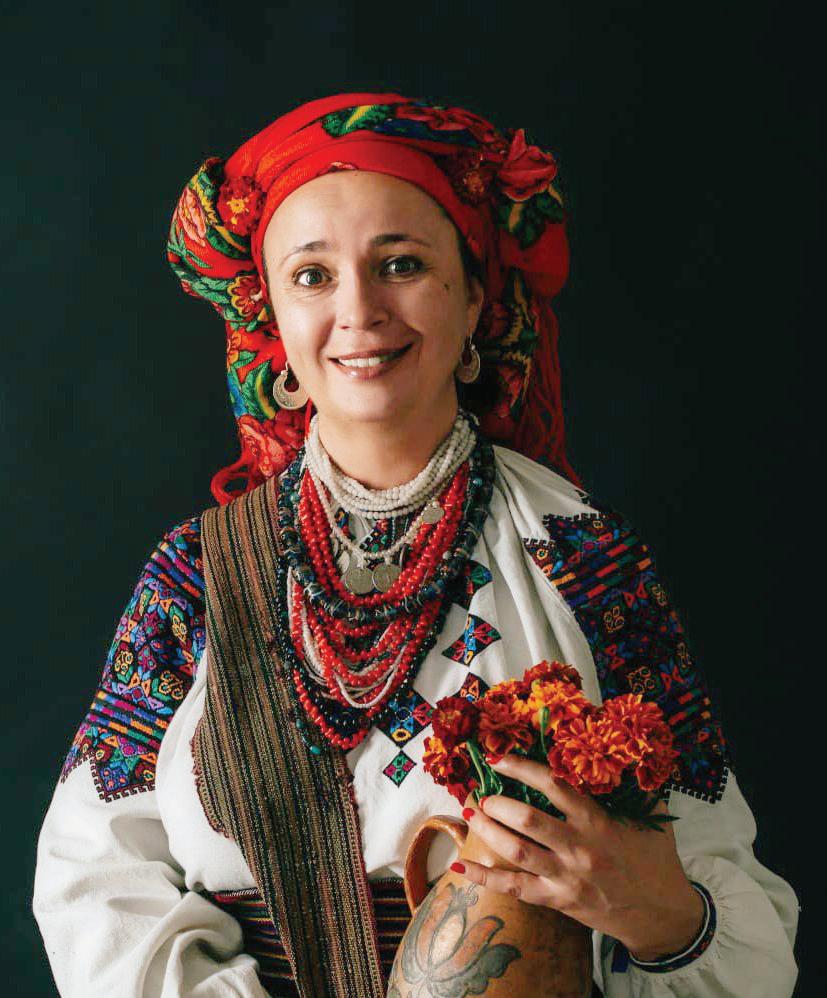
or Ukrainian-born Svitlana Kominko, life is all about relationships — in good times and bad. As a respected educator and international program developer at the British Columbia Institute of Technology’s (BCIT) School of Business and Media, and CEO of Maple Hope Foundation, she has dedicated her life to uplifting people.
“There’s nothing more meaningful in life than the relationships we build with others — and nothing more painful than losing those we love,” says Kominko, who came to Canada in 2005 with a PhD in psychology. “As Ukraine endures the devastation of war, my family and our community feel a deep responsibility to support those who are suffering as a result. We are profoundly grateful to Canada for welcoming us with open arms and providing shelter to Ukrainians who fled the war. In return, we see it as our duty to give back — by working hard, contributing to the Canadian economy, and strengthening the country that gave us safety and hope.”
Nursing is known as a noble profession. Hearing Rodolfo D. Lastimosa Jr.’s story makes it easy to understand why.
“I am driven by a deep sense of purpose and commitment to serving others,” says Philippines-born Lastimosa, RPN, RN, who recently took on the role of associate director of care (RN) at Sienna Senior Living in Toronto. “I have seen firsthand the impact that compassionate and skilled health care can have on individuals and their families.”
Lastimosa, who also trained as a physiotherapist and midwife back in the Philippines, believes that every patient deserves to be treated with dignity and respect.
“At Sienna Senior Living, I will be involved in improving the quality of care for residents, from developing new care programs, to implementing innovative technologies to enhancing staff training and support,” he says.
In both his job and as president of the College of Nurses of Ontario Council, Lastimosa is also a powerful advocate for the nursing profession. “I want to elevate the status and recognition of nurses and

their importance in health care delivery,” he says.
Key to this has been championing other internationally educated nurses (IENs) navigating the Canadian health care system like he did after he immigrated in 2011.
“When I first applied for jobs in Canada, I noticed that many employers were looking for candidates with Canadian credentials and work experience. This made it challenging for me to stand out and compete with other applicants, even though I knew I had the skills and knowledge needed for the positions,” he recalls.
To bridge this gap, Lastimosa took university courses, earned certifications and volunteered extensively with student and nursing associations. Most importantly, he never gave up.
“The process of having to prove myself in a new country was a humbling experience, but it ultimately made me more determined to succeed,” says Lastimosa, a previous winner of the Joan Lesmond IEN of the Year Award, among other awards. “Now, I strive to be a positive role model for others to show that through hard work, dedication and a commitment to excellence, we can all make a positive impact.”
Recognizing the emotional toll of forced migration, the organization also supports displaced Ukrainians in Canada, offering mental health support, and career guidance. Further, it organizes and supports cultural events celebrating Ukrainian history, language, music and art.
“My greatest dream is to raise $1 million to provide professional support for grieving Ukrainian women who have lost their loved ones in the war through Maple Hope Foundation’s international campaign Heal a Mother’s Heart. It is a call to stand with Ukrainian mothers whose hearts are shattered by unimaginable loss,” she says.
Recognized with the Ukrainian Canadian Congress Leadership Award and multiple leadership awards from BCIT, Kominko is quick to share her success. “No dream — personal or professional — is ever achieved alone. People are the key. That’s why I believe in leading with heart, in being a servant leader who listens, supports and uplifts others.”
In 2014, she co-founded Maple Hope Foundation in Vancouver, B.C., to support Ukrainians affected by war. Under her volunteer leadership, the foundation has provided more than $33 million in aid, delivering humanitarian assistance, medical aid and capacity-building projects to the Ukraine since the 2022 Russian invasion alone.

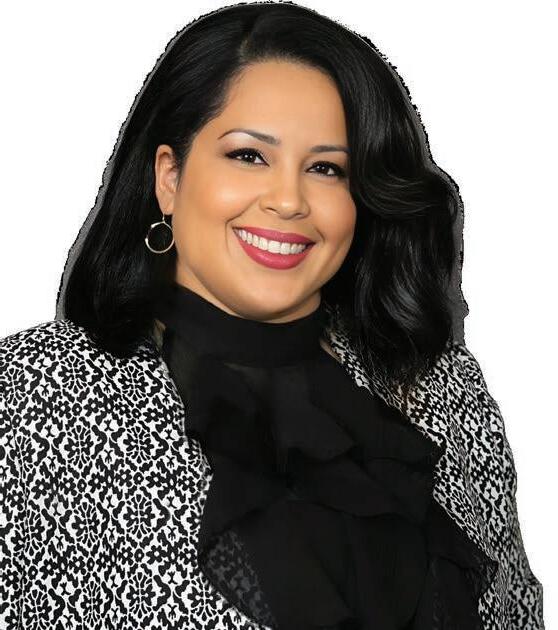
imone Le Gendre’s journey isn’t your typical immigration story. Unlike so many skilled immigrants who struggle to find commensurate work in their field, Le Gendre, Ed.D, was hired before she even left Trinidad and Tobago in 2018.
“I chose Nova Scotia sight unseen. I had never visited Canada before and expected that I might have to start over, maybe even outside my field [of education administration]. But to my surprise, I was hired into a senior, permanent, unionized role in my field with the provincial government of Nova Scotia,” she says. “It affirmed for me that Canada was a place where merit could speak for itself.”
She began her Canadian public service career as a STEM curriculum consultant, designing innovative learning pathways for adult learners and educators. She then moved into various leadership roles with the provincial government, making history as the first immigrant and Black woman to serve as provincial director of immigration and settlement in Nova Scotia.
Today, Le Gendre leads Nova Scotia’s first Ocean Governance


Secretariat at the Department of Fisheries and Aquaculture, where she provides strategic guidance and decision-making support to ministers and deputy ministers on marine planning, conservation and intergovernmental coordination.
Named one of the Most Inspiring Immigrants in Atlantic Canada in 2025, Le Gendre is a leader with vision. “I’ve always been able to see what doesn’t exist yet but should. Whether it’s a policy shift, a platform or a more inclusive system, I move toward it with purpose, and I trust that the right people and resources will come when I take the first step,” she says.
She is also the founder of EduHaus Inc., a mission-driven social enterprise democratizing access to STEM education for underrepresented communities. Here, she is leading groundbreaking initiatives like STEMpal, an AI-powered learning platform, and Roots & Harvest, an urban hydroponic farm that grows culturally relevant crops in upcycled shipping containers.
“What ties it all together is purpose,” says Le Gendre, this year’s Edward Jones Top 25 Leadership Award winner. “Whether I’m in a government boardroom or at a farm built from upcycled shipping containers, I’m doing work that builds futures, widens access and reimagines what leadership can look like.”
George Brown College’s free, 10- week ReNEW program can help you develop the skills to succeed in the Canadian workplace.
Key benefits:
• Learn how to search effectively for jobs in Canada.
• Grow your social and professional networks.
• Identify and articulate your transferrable skills.
The next ReNEW program starts in September so apply today to secure your spot!

Social media star Andrian Makhnachov came to Canada because of the war in Ukraine, landing in Regina, Saskatchewan in the cold days of winter. “It was winter, and it was very depressing. But the hardest part was feeling very lonely and not knowing what to do next,” he says.
Life was certainly different, and Makhnachov, then just 19 years old, started creating videos documenting funny and relatable things he was learning about living in Canada. His honest take was quickly noticed on social media, propelling him into a full-time career as an influencer on Instagram and TikTok. TikTok Canada even named him a breakthrough star of the year in 2022!
people from all over Canada were so supportive.”
But he also received some hate speech. “One of the hardest things for me was reading comments like I was living off of Canadian taxpayers, when in reality I was working three jobs.”
When Makhnachov became a permanent resident, he nervously shared this milestone online, but he says the comments were fortunately encouraging.
“Canadians accepted me with open arms and made me feel at home,” he says.
YOUTH AWARD RECIPIENT OF 2025
“I wasn’t planning on being a content creator. One day I posted a video complaining about why the showerhead was attached to the wall in Canada. It went viral. I was getting comments like ‘Oh wow. He hasn’t tried milk in a bag yet. He hasn’t tried ketchup chips yet.’ Somehow these interactions helped me forget about being depressed and adjust to Canadian life because
Sam Osmow’s journey to entrepreneurial success in the restaurant industry is a testament to the power of believing in one’s vision. Born and raised in Egypt, Osmow immigrated to Canada in 1998 with his wife, Beatrice, and their three children, seeking a better future. Unfortunately, his education and experience didn’t carry over in Canada, and to make ends meet, he worked night shifts at a gas station while Beatrice worked days at a napkin factory.
“It was evident that the income coming from the jobs we were able to secure were not enough to sustain the life we came here to Canada to live,” he says.
The couple used money they had brought from Egypt to buy a house and invest in a small sub shop in Streetsville, Mississauga. It brought in steady income, until big brand competitors like Subway opened nearby. He decided to switch up subs for Mediterranean cuisine.
Not everyone believed it was a good decision.
“I had all the management skills needed to be able to operate a restaurant successfully, but it was my determination that allowed me to push through all the negative feedback,” he says.
After a slow start, some free samples of shawarma and word of mouth led to lineups out the door. Today, he has more than 200 fast casual restaurants in Eastern Canada — and growing.
“Based on the growth our company is seeing, I’m currently expanding our plant operations (the central
kitchen) by 17,000 square feet to keep up with the demand,” he says.
Osmow’s has also been expanding into the U.S., but perhaps the most important ingredient to his success is the ability it has given him to give back. He launched Osmow’s Hope Fund, whose mission is to provide basic necessities both locally to food banks and shelters, as well as internationally, recently partnering with a charitable organization to construct four wells and four kitchens in Zambia.
“Giving back is close to my heart. I have always believed that the more you make, the more you must give,” says Osmow, this year’s COSTI Top 25 Entrepreneur Award winner. “It’s a blessing to be able to help.”

Makhnachov now feels a responsibility to use his platform for good, bringing awareness to humanitarian issues like the war in Ukraine, reconciliation with Indigenous Peoples, the Canadian media industry, and children and autism. His influence has brought him into conversations with political figures, including attending the Governor General’s Symposium: Building a Safe and Respectful Digital World.
“I try to use my platform to talk about things that matter, to help others and to make a positive difference in this country that gave me so much,” says Makhnachov, who seems much wiser than his 22 years — earning him this year’s Top 25 Youth Award.
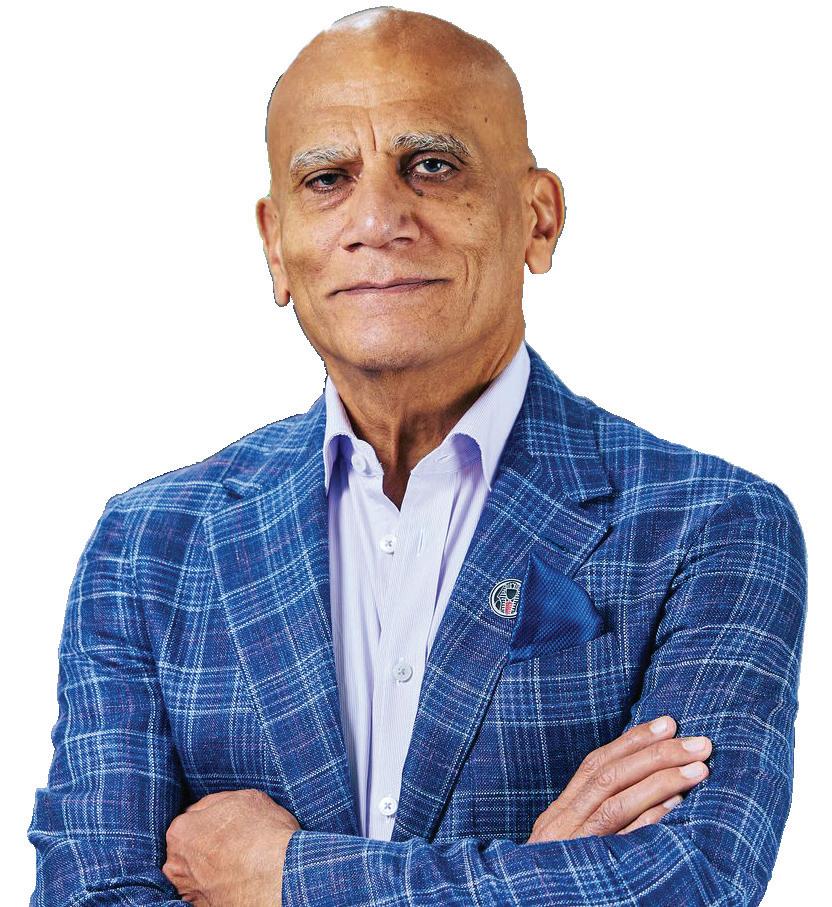



avi Rodrigues was an acclaimed choreographer in Brazil when he came to Canada to further his dance education. At 27 years old, he was humbled to find himself having to rely on financial support from his mom back home, while he learned English and established himself in
“Imagine trying to navigate a new city, school and social life when you can barely understand what people are saying! Every interaction was a test, and the language barrier made the feeling of dependence even more acute,” says Rodrigues.
“It was a humbling and often frustrating experience, but it pushed me to learn and adapt quickly.”
Rodrigues found his place as a dancer and guest choreographer at Lamondance in Vancouver, B.C. His high-energy, immersive style garnered attention, leading to his appointment as co-director of the company. In 2014, he became Lamondance’s artistic director, nurturing emerging artists into professionals through its post-secondary contemporary
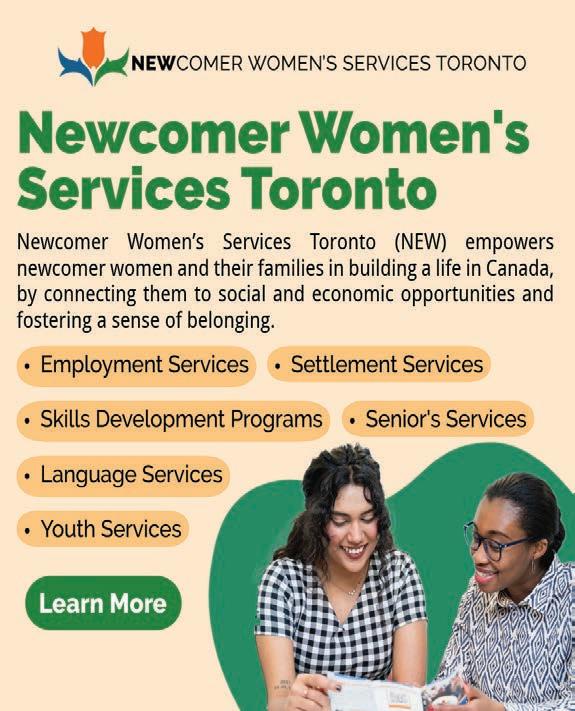
training program and professional dance company.
“My journey with Lamondance is deeply personal, as I first danced with the company and, now, I have the privilege of leading it,” he says. “I’ve evolved both as a human being and as a creative voice, all while supporting incredible young talents.”
In 2019, Rodrigues played a pivotal role in transforming the company into Lamondance Arts Society, a non-profit charitable organization dedicated to making dance accessible to all, including through a scholarship program for both local and international dancers.
“What I love most about my role is offering a space for artists to evolve, share and collaborate,” says Rodrigues, who is also a strong supporter of the LGBTQ+ community to which he belongs. “What excites me most are the never-ending possibilities of supporting others in this complex and ever-evolving world.”
For Rodrigues, those possibilities include everything from throwing his annual Lamondance & Friends Gala to writing a book, Black Feather, based on one of his past choreographic pieces.
“I’m incredibly excited to share this story in a new medium, which I believe will resonate with many,” he says. “There’s always a new way to innovate, connect and make a difference.”
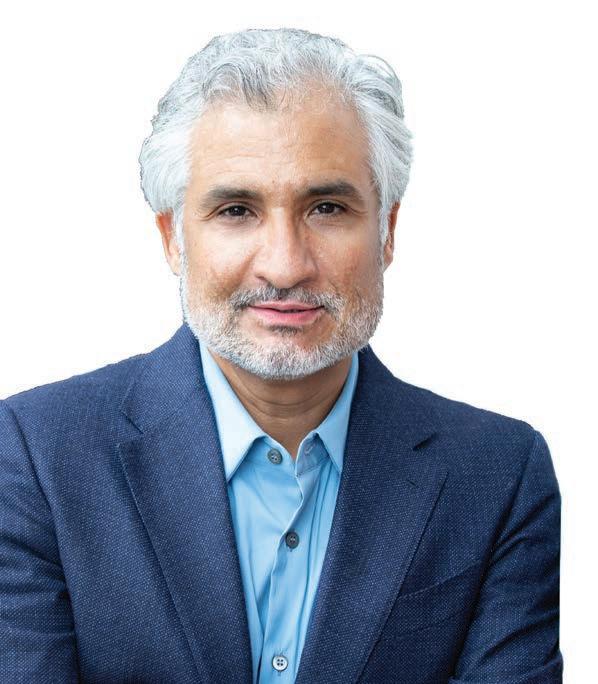
n Canada Day in 1976, Reza Satchu immigrated to Canada from Kenya — an event he considers the single most important moment that shaped his life.
He watched his Ismaili parents work tirelessly — his mother as a secretary and his father as a real estate agent — to build a better future for their children in Scarborough, Ontario.
To look at Satchu’s achievements today, he has obviously built a successful life his parents can be proud of. He co-founded, built and managed six businesses across multiple industries, which have collectively been sold for more than $3.5 billion. He is the founder and managing partner of Alignvest Management Corporation, a private investment firm that recently built and sold Alignvest Student Housing for $1.7 billion.
But, in those early years in Canada, Satchu remembers feeling like he had no control over his circumstances. So, he studied diligently, earning a bachelor’s in economics at McGill University and an MBA at Harvard Business School. “I focused on learning as much as possible because I wanted
Dan Shaikh knows what it feels like to be invisible — and he has built his life and career around changing that for others.
Born in Pakistan and raised in Canada since age eight, Shaikh grew up in a blue-collar immigrant family navigating language barriers, financial struggles and the isolation of being a shy kid who never quite felt understood.
“My parents were busy surviving — working lowwage jobs, learning English and figuring everything out,” says Shaikh. “I didn’t have mentors. I felt alone and overlooked.”
But those early struggles became the spark for a purpose-driven life. At 19, a simple Reddit post about life regrets inspired him to shake off self-doubt, lean into discomfort and pursue a life with no regrets. This path would eventually lead him to co-found Speaker Slam, a speaker development agency and inspirational speaking competition.
As co-founder and chief publicist of Speaker Slam, Shaikh has helped more than 1,000 people transform personal struggles into powerful stories that launch brands, movements and careers. “What I love most is helping someone go from feeling invisible to stepping into their power,” he says.
His work champions untold stories from underrepresented communities, especially around mental health, resilience and purpose. Shaikh has helped everyday people land media features, book
to find a path to control my own destiny and my family’s destiny,” Satchu says.
That path turned out to be entrepreneurship, which he routinely defines as the “relentless pursuit of opportunity without regard to resources currently controlled.”
Explaining this further, Satchu says entrepreneurship is much more than having a good business idea. “You have to adopt what I call the ‘founder mindset.’ It shifts your focus from limitations to possibilities,” he says. “It is about committing to your path, focusing your energy, developing your judgment and going for it.”
To share his strategies with other entrepreneurs, Satchu teaches popular courses called the Founder Mindset and Founder Launch among others at Harvard University and University of Toronto.
Satchu also founded NEXT Canada in 2010, a philanthropic entrepreneurship program providing education, mentorship and funding to Canada’s most promising young entrepreneurs. As its chair, Satchu has helped support more than 1,200 alumni who have launched more than 400 ventures.
It seems Satchu’s true destiny is not just creating his own path to success but helping others build a better future of their own.
deals, viral videos and big-stage speaking gigs. His behind-the-scenes publicity skills have helped clients appear on national media outlets such as Breakfast Television, Global News Social and more.
He also co-authored Amazon bestseller highlighting the stories of everyday heroes.
This fall, Shaikh will host the Grand Slam, otherwise known as the finals for Speaker Slam’s season, where finalists compete for the title of Inspirational Speaker of the Year and a prize package worth up to $50,000.
Speaker Slam has also raised more than $30,000 for community causes.
Shaikh sees his work as both a privilege and a promise: “I know what it’s like to play small, to doubt yourself and to wonder if your story matters. That’s why I work so hard to help others feel seen. I feel a deep responsibility to turn that privilege into purpose.”


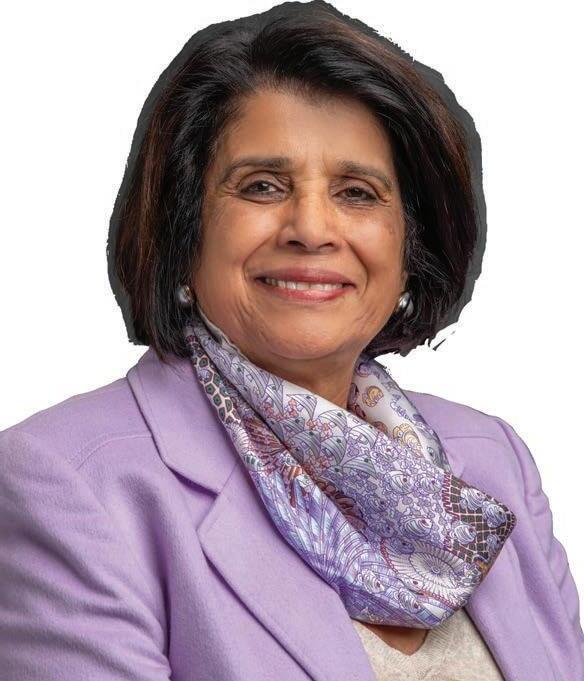
Ratana Stephens stepped off a plane in Vancouver in 1969 with a master’s degree in English literature and psychology, an arranged marriage and little idea of what lay ahead.
“I had never been to Canada before,” says Indian-born Stephens. “We lived in a small apartment above the restaurant that my husband, Arran, owned. It was Canada’s first vegetarian restaurant!”
It was a modest start to a future that would see her co-found other restaurants, a health food store and then Nature’s Path, North America’s largest organic breakfast food company. The couple built the business from the ground up with long hours and a shared vision to serve nutritious, sustainable food — which is now exported to more than 40 countries. As the product line evolved — from cereals and breads to granola, waffles, tortilla chips and baby food — Stephens’ leadership did, too. She served as general manager, COO and eventually co-CEO, before passing the torch to two of her four children. Now retired, she sits on the board of directors, still known as the company’s guiding heart.
Peizhong (Peter) Wang, PhD, is an internationally recognized epidemiologist, professor and public health leader whose work has shaped research, policy and immigrant wellbeing in Canada. But it didn’t happen right away.
With a medical degree from Tianjin Medical University in China, Wang was humbled to learn his professional credentials wouldn’t be exactly recognized after immigrating. “Despite my background, I struggled to demonstrate my capabilities in a new system,” he says. “Rather than seeing this as a dead end, I chose to upgrade my skills by pursuing a PhD in Canada — a decision that transformed my trajectory.”
Now a tenured professor of epidemiology at Memorial University of Newfoundland and a professor at the University of Toronto’s Dalla Lana School of Public Health, Wang is also a senior scientist at the Beatrice Hunter Cancer Research Institute. He has led and secured funding for numerous research projects, has 160+ peer-reviewed publications focused on cancer epidemiology, chronic disease prevention and immigrant health, and is a sought-after OMNI TV public health commentator.
“Early on, I was fortunate to have immigrant role models who showed me what was possible,” he says. “Their resilience in the face of adversity
became my blueprint. Now, I strive to be that same beacon for others.”
That’s one of the reasons he founded Centre for New Immigrant Well-Being (CNIW) in Toronto, which leads national health literacy programs, mentorship initiatives and advocacy efforts.
“At CNIW, we don’t just offer resources; we create living examples of success through mentorship programs where past participants return to guide newcomers. Because when someone sees a person who shares their background thriving, it doesn’t just inspire — it convinces them, ‘I belong here, too.’ That’s the power of community,” says Wang, who also founded the Chinese Immigrant Cancer Support Network to offer peer support and culturally tailored resources to cancer patients across Canada.
Wang sums up his journey this way: “Humility taught me to ask for help, perseverance kept me focused during setbacks, and hard work turned opportunities into results. These qualities, combined with the generosity of those who believed in me, shaped my journey from immigrant to advocate for others.”
“People are your best investment,” Stephens says. “I believe success comes from surrounding yourself with good people and treating them with empathy and care.”
Her business acumen has been recognized on repeat, most recently as one of Canada’s Most Admired CEOs in 2024. But it’s her philanthropy that has truly distinguished her leadership story.
Through Nature’s Path and personal giving, the Stephens family has donated more than $60 million in funds and food to causes ranging from food banks to hospitals. And their Gardens for Good initiative helps establish organic food gardens in underprivileged neighbourhoods.
Stephens has also served on boards of Canadian institutions like the United Way British Columbia, BC Children's Hospital and Royal BC Museum.
Recognized with the Order of British Columbia and named one of Canada’s Top 100 Most Powerful Women, Stephens says, “Giving back has been a core value of my entire life and it’s a value I tried to bake into Nature’s Path’s DNA. Now that I am retired, I am looking forward to making more of a difference.”




When non-profit leader and singer Lenya Wilks uses her voice — whether in service or in song — it sparks connection, healing and change.
“Making a difference isn’t just my work, it’s my purpose,” says Jamaican-born Wilks, a director at registered charity DIVERSEcity Community Resources Society in Surrey, B.C.
“I’ve faced my share of challenges, but there was always someone who showed up for me with guidance, support or simply a kind word. That taught me that even small acts of support can have a profound impact,” she says.
It’s no surprise that supporting people is at the heart of her work at DIVERSEcity, where she leads a broad range of portfolios including mental health, gender-based violence programs, child and family services, community engagement and advocacy. “What excites me most is being part of meaningful transformations that centre equity, inclusion and belonging, whether that’s in the life of one newcomer or within an entire community system,” says Wilks. This work resonates deeply with
her own immigration journey.
“Before moving to Canada, I had built a life that many dream of, touring the world as a backup performer. But I moved here with the intention of creating a new life,” says Wilks, who came to study at Brandon University in Manitoba. “But stepping off that stage and into my first job in Canada as a sales associate was a jarring transition. I felt disconnected, even ashamed, while quietly grieving the life I had left behind.”
That time in her life taught her something invaluable, however. “I learned humility, resilience and the power of reinvention. Those early experiences, which once felt like setbacks, have become the foundation of my leadership.”
Wilks built a career in Manitoba’s community sector, advocating for newcomers, youth and racialized communities. She also continued to inspire through singing, even appearing on Canada’s Got Talent in 2022, before relocating to B.C.
For Wilks — who is hoping to return to performing soon — music and community work have always been deeply interconnected, helping her make an impact in the world — one note, one conversation and one act of service at a time.



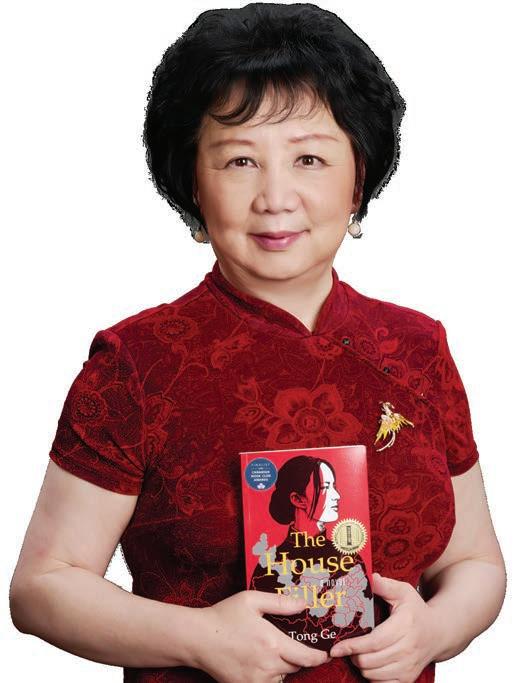
Hong Kong-born Sandra Yeung Racco is a trailblazing figure in Canadian municipal politics, serving five terms as a councillor for the City of Vaughan, making her the longest-serving Asian female politician in Ontario’s York Region.
In her political career, she was a driving force in addressing the needs of youth and seniors, and championing community and cultural initiatives, including advocating for the subway extension to Vaughan from Toronto in 2017.
“My involvement on numerous committees and boards allowed me to work closely with residents, businesses and stakeholders in shaping the vision for the City of Vaughan,” says Yeung Racco. She looks back with pride at being fair, open and accountable in her work.
Now retired from politics, Yeung Racco is still empowering people and advancing progress through her own businesses and community work. It’s simply part of who she is.
“My strong commitment to fairness, transparency and community-mindedness has played a crucial role in shaping the person I am today. In every decision and action, I strive to uphold these principles,” she says.
Today, Yeung Racco does so through Racco & Associates, her government relations consultancy firm, and Empowering YouR Vision, a mentoring
By the time Sherry Wong published her debut novel The House Filler in 2023, she had already lived numerous lives — daughter, student, immigrant, financial planner and storyteller. Writing under the pen name Tong Ge, Wong's voice is shaped by her journey of persistence, heartache and hope.
Originally from China, Wong arrived in Canada in 1988 as a graduate student at the University of Saskatchewan, with a background in banking and finance. When the Tiananmen Square massacre unfolded the following year, she, like other Chinese students, was offered a path to immigration. But that promise came at a heavy price — her father was on his deathbed.
“I was desperate to return to China to see my father one last time,” she says. But bureaucratic delays and a cold dismissal from a local immigration officer robbed her of that chance. “Missing the chance to say goodbye to my father remains the deepest regret of my life,” she says.
Yet from that pain, Wong found her voice. “Suffering — if I haven’t suffered, how can I feel your pain?” she postulates. That empathy drives both her career —
organization she established to empower young individuals, organizations and businesses.
“Sharing our knowledge and experiences with the next generation is vital in helping them realize their full potential and contribute meaningfully to society,” she explains.
Yeung Racco, who has a music education background, does the same for artists, namely as co-founder and chair of the Vaughan International Music Festival.
“By offering platforms and opportunities to showcase their talents, we can help these gifted artists expand their reach and achieve recognition,” she says.
Furthermore, Yeung Racco, proud of her own heritage, wants to amplify the collective voice of the Asian community in Canada.
“As one of the largest immigrant groups in the country, it is vital that our significant contributions to Canada are recognized and valued, and our perspectives are considered in shaping the nation’s future,” she says. “This country has enabled me to pursue my dreams and passions, and I am committed to making a meaningful contribution to our community and nation.”
helping fellow immigrants as a certified financial planner and an insurance advisor at Harbourfront Estate Planning Services in Calgary, Alberta — as well as her writing. Her poetry, prose and short stories have been published in both English and Chinese across North America, England and Taiwan. The House Filler, the first book in a trilogy, has garnered significant acclaim, becoming a finalist for the 2024 Eyelands Book Awards, the 2024 Canadian Book Club Awards and the 2025 International Book Awards. It has also received the 2024 Independent Press Award for New Fiction, the 2024 National Association of Independent Writers and Editors Book Award for Literary Fiction, the 2025 Maxy Award for Historical and Adventure and second place in the 2025 BookFest Awards for Literary-Historical Fiction.
Wong’s second novel, The Pinioned Bird, is now seeking a publisher, and she’s hard at work on her third book, The Dream Chaser. Throughout her journey, Wong has believed in the power of stories. “I am passionate about sharing immigrant stories with the world.”
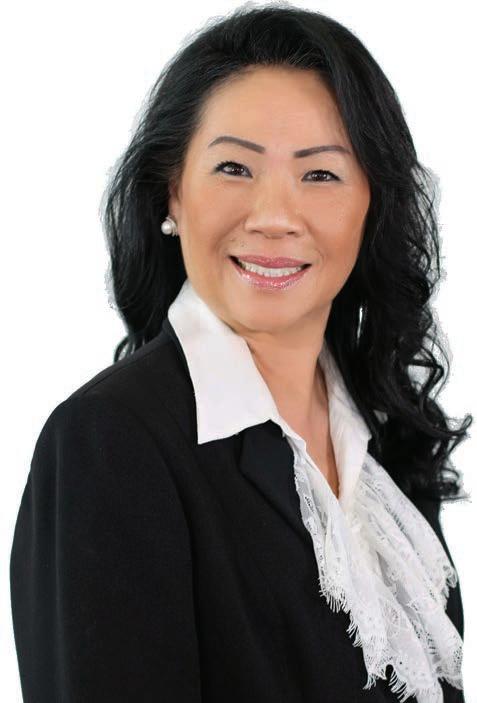



Dave Zackrias, superintendent of the Ottawa Police Service, feels deeply connected to his adopted country of Canada — but it took some time to get here. After immigrating from India at age 15 with his family, Zackrias felt the loss of his sense of belonging.
“Starting anew and learning to adapt was the largest struggle I faced and overcame,” Zackrias says. “Today, it is immensely rewarding to feel rooted in Canada. Establishing connections within the community, having family nearby and raising my children in this country has been a significant blessing. Canada no longer feels foreign; it is now home.”
Inspiring this type of belonging for others has been fundamental to his career as a police officer, which began with the Toronto Police Service 28 years ago.
“I am deeply driven by a passion for human rights and have advocated tirelessly for fairness and equity, especially for members from marginalized and vulnerable communities,” says Zackrias, who leads the Ottawa Police Service’s Respect, Values and Inclusion



Directorate.
He has also been focused on addressing the root causes of crime, combating systemic discrimination and promoting trauma-informed service delivery. His work in building community trust, along with extensive volunteer work in the community, has been recognized with the 2016 Peace Award from the Canadian Institute for Conflict Resolution and the 2014 Gold Medal of Excellence from the Human Rights and Race Relations Centre of Toronto.
His leadership was particularly evident during the Tamil protest in April 2009 in Canada’s capital when he led the Ottawa police liaison team to a peaceful resolution in collaboration with protest organizers and officials.
“I want to be able to look my sons in the eye and tell them I did all I could to secure a fair, just and bright future for them in Canada, one that allows them to be seen for their skills and talents, not for them to be judged by the colour of their skin,” says Zackrias. “I want to be part of levelling the field for future generations — that is what keeps me focused on creating opportunities for all Canadians to succeed and thrive.”

Ready to become a certified tradesperson in Alberta?
Whether you're experienced or just starting out, Apprenticeship and Industry Training can help you earn your Journeyperson Certificate.
• Already working in a trade? Apply online and prove your skills to get certified. • Just starting? Begin your apprenticeship through our website. Get certified. Get working. Grow your future in Alberta.

Visit tradesecrets.alberta.ca to get started.



Birdwatching was an unlikely hobby for Julia Zarankin. Her parents were concert pianists who preferred museums and libraries to parks and forests. When the family immigrated to Canada in 1979 from the former Soviet Union, they encouraged intellectual hobbies such as reading and learning languages. “We didn’t do nature,” Zarankin admits. Then, at age 35, everything changed.
While going through a career shift, Zarankin started a process she called “auditioning hobbies.” She was willing to try everything from cycling to pottery. One day, she joined a group of local birdwatchers meeting in a Toronto parking lot at 7 a.m. Birdwatching wasn’t exactly love at first sight.
“We had been walking for about two hours; I didn’t recognize anything that people were seeing. Everything looked the same. I started pointing my binoculars at the CN Tower,” she laughs.
But then came the moment that changed everything.
She heard the loud, rasping call of a red-winged blackbird — a jet black bird with striking red and yellow shoulder stripes like a soldier’s uniform. “The bird was beautiful … I was enamoured,” she recalls.
That one bird sparked a passion. Zarankin became an avid birder and even wrote a book about it: Field Notes From an Unintentional Birder.
Birding (or birdwatching) is simply observing birds — wherever you are. And it’s easier to get started than you might think.
All you really need is a pair of binoculars and a little curiosity. You don’t have to splurge on fancy gear, either. Many public libraries now lend out birding backpacks, complete with binoculars and a bird guide.
By Lisa Evans
different birds right here,” she says, adding there are more than 300 species of birds in Toronto, the city she now calls home. Here are a few ways you can get to know the birds near you:
• Use a bird feeder: It’s a great way to attract feathered visitors if you have a backyard or balcony.
• Visit a local park: Even a short walk can be a great birding opportunity, —, just bring your binoculars and keep your ears open.
• Join a bird walk: Local organizations, like the Toronto Ornithological Club, host them. They are beginner-friendly and a great way to learn and connect with others.
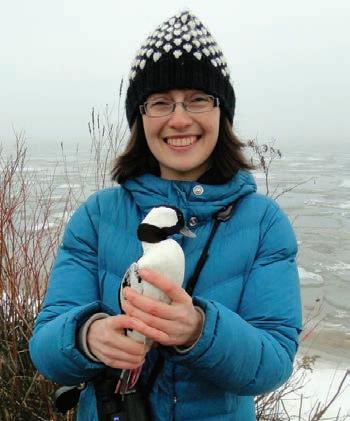
“There are lots of great apps out there, too,” says Zarankin. The Merlin app, for example, is a free app that allows you to record bird sounds anywhere you are and will tell you what species you are hearing so you can look for it.
Zarankin advises to start in your own neighbourhood. “Before I started birding, I thought you had to go far from the city to see nature,” she says. “But Toronto is on a migratory flyway, so you can see hundreds of
If you are in or around Toronto, Zarankin recommends:
• Colonel Sam Smith Park
• Tommy Thompson Park
• Ashbridges Bay
If you are up for a drive, Zarankin recommends Long Point and Point Pelee, one of Ontario’s best birding destinations.
Zarankin still has a fondness for the red-winged blackbird. “Every time I see one, it takes me back to that moment,” she says. But if she had to pick a quirky favourite, it’s the American Woodcock.
“It is pudgy and pouty and has a really long beak, and its eyes are super close together and high up on its head. It’s not the best-looking bird,” she laughs, “But in the spring, it turns into a total Don Juan and does this extraordinary aerial mating dance. It’s the most unexpected behaviour from such a pudgy, pouty-looking bird.”
Every birder has a life list. What’s on Zarankin’s? “I’d love to see a blue grosbeak or a yellow-breasted chat,” she says.
Though she mostly birds in the city, every now and then she goes all in. She once drove 2,000 kilometers round-trip to Cochrane, Ontario, to see a grey-crowned rosy-finch. Along the way, she spotted a willow ptarmigan — “they look like snow chickens,” she says.
Birding doesn’t require much more than a sense of wonder and a willingness to look up. As Zarankin puts it: “The more you see, the more you want to see.”
Yes — keep building skills and be ready to pivot
Accurately predicting which jobs will be in demand in the future has never been easy. Many factors can impact job stability and growth, including financial, political, technological and climate-related changes. Most recently artificial intelligence (AI) is said to potentially influence almost all occupations. More than ever, planning for a future work life is challenging as change comes rapidly.
In looking for information on what fields to study to future-proof your career, one place to start may be to ask AI and to look at reputable websites. Government websites, for example, can show you both current areas of employment and what they believe will be in demand in five years.
People working in the field you are considering would have a sense of the direction the field is going in and a few information interviews with them could be immensely helpful. If you need help finding this information and with setting up information interviews, your school’s career centre can guide you. Asking these questions at your school’s information sessions or from your current professors will lend another perspective.
Look at those occupations that have been cited as the most promising for future growth or stability. However, be mindful that, in the

past, the rush towards those have often produced an oversupply or the promising opportunities failed to emerge. This has been true for teachers, lawyers, some branches of engineering and even nursing careers. The predicted great retirement of university professors never happened, leaving many new PhD graduates disappointed. Trying to gauge future work opportunities is just one aspect of career decisions.
It is important to consider your interests as this will give you more enthusiasm for both studying, work and for incorporating new directions in work as they develop over time. You do not want to close the door prematurely based on current interests alone; many students surprise themselves as they develop an appreciation for studying and working in areas they might not have considered to their liking.
unemployed or underemployed, the knowledge gained and skills learned by studying what is most interesting will provide, at the very least, some personal satisfaction and possibly transferable skills.
There are some skills that may prove useful in getting a specific job or getting into a program. These skills will not stop the march of AI or guarantee a position, but they may help in being more competitive. For instance, a middle school teacher who can play the guitar or coach soccer may be an asset. Speaking other languages may not be a job requirement but it may prove useful in the hospitality industry. The social service administrator of a small agency who understands some accounting and marketing can be very helpful in keeping the agency going. Courses that improve written
and public speaking skills can make you a more valued candidate and that will not change in the future. Choosing elective courses could be done with this in mind. Once in a position, it may become clear what training or courses, and specific new skills are needed to stay current.
Over the decades, newcomers have had to reinvent themselves when they were unable to work at their past careers. While some had great difficulties, some were able to utilize what they had done to forge a new career path. The pulmonologist became a consultant to a medical technology business, the dentist a salesperson for dental equipment, and the high-level government administrator began a career teaching an economics course to college students. They used their knowledge and skills in related but other ways. Building a new direction from past skills and education may become even more prevalent as jobs are eliminated and new ones emerge. There may be some choices that may be safer, but they may also be the most competitive. Having alternate plans is always a good idea.
Uncertainty is in the future and trying to decide on a career that will also continue to be marketable is a task that will take some research and work, and this may be done several times in a work life.

The opposite may also be true as students find the field they chose not suitable for them. If many jobs are taken over by AI and other technologies, leaving people

Geneviève Beaupré and Susan Qadeer have extensive experience working in university and college settings, providing career, academic and personal counselling to international and immigrant students.











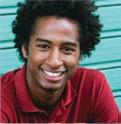

•
• Career search
• interview workshops
• Resumé clinic
Education
• University and college info
• English pronunciation
• Foreign credential information
• Tuition microloans
Settlement
• Inspirational immigrant speakers
• Immigration and visa advice
• Settlement services banking information
• & more!
Calgary - August 8, 2025
Telus Convention Centre North (136 8th Ave SE)
Edmonton - September 25, 2025
Sandman Signature Edmonton
Downtown Hotel (10235 101 St NW,)
Vancouver - October 29, 2025
Vancouver Convention Centre (999 Canada Pl.)
Mississauga - November 2025
Living Arts Centre (1414 Living Arts Dr.)


Summer is here, and for many, it's the perfect time to travel. But for temporary residents in Canada, especially those with expiring permits or visas, international travel can not only be complex but also risky.
Many of the headaches can be contributed to ongoing delays at Immigration, Refugees and Citizenship Canada (IRCC). Increased application volumes, staffing shortages, new restrictions on "flagpoling" and immigration levels planning have all contributed to historically high processing backlogs. In-Canada work or study permit extensions, for example, can now take more than 200 days to process.
Unfortunately, these delays can disrupt travel plans and create uncertainty. If you are a temporary resident, it is essential to understand how IRCC processing times, maintained status, and re-entry options could affect your situation before making any travel arrangements.
How to check processing times and what they mean
Wondering how long it will take to hear about your application? For most application types, IRCC provides regularly updated average processing times, available at: www.canada.ca/processingtimes. These timelines are based on how long it took IRCC to process most complete applications in the recent past, giving applicants a general sense of what to expect in terms of timing.
It’s important to note however that these estimates do not include the time it takes to provide biometrics and may not reflect timelines for applications involving complexities, such as inadmissibility concerns. While some applicants may request expedited processing, IRCC is not obligated to grant such requests. In most cases, applications will not be prioritized simply due to travel plans. To be considered, requests typically must be supported by compelling humanitarian or significant economic reasons.
The first step is to check current processing times well in advance so you can plan accordingly. If you wish to remain in Canada beyond the expiry date of your current permit and benefit from maintained status, you must submit your extension application before your status expires. However, as outlined below, maintained status comes with certain limitations, particularly when it comes to international travel, so applying earlier may be recommended.
Officially, IRCC recommends applying at least 30 days before your status expires. However, this may not be sufficient if processing times for your specific application type are lengthy. In such cases, it may be wise to apply even earlier to

minimize disruption and reduce risk.
If you apply to extend your permit before it expires and remain in Canada, you are considered to be on maintained status (formerly called implied status). This means you can legally stay and continue working or studying under the same conditions as your current permit, until a decision is made on your application.
But there is a catch: maintained status ends if you leave Canada. This means that if you travel outside Canada after your previous permit has expired and you have not yet received a decision on your extension, you cannot resume working or studying upon re-entry until your new permit is approved.
Maintained status can also create complications when it comes to accessing provincial health care or keeping your driver’s licence valid, as these are often tied to the expiry date of your original permit. While it may be possible to obtain temporary extensions, they are typically short-term and can lead to ongoing challenges with frequent renewals and inconsistent access to services.
Can you apply at the port of entry?
For some applicants, applying for a new permit at a port of entry can be a faster and more convenient alternative to submitting an inCanada application. If eligible, you can be issued a new work permit on the spot, avoiding long processing times. If you need to travel outside Canada, it may be convenient to time your departure to coincide with the expiry of your current permit and then re-enter Canada to request a new one at the border.
However, there are several important considerations with this strategy. First, timing matters. If you attempt to apply for a new permit too early before your current permit expires, Canada Border Services Agency (CBSA) officers may refuse to issue a new permit and instruct you to apply online instead. The second consideration is that if you leave Canada briefly for the United States and return shortly after, CBSA officers may consider this "flagpoling"- a practice where temporary residents exit and re-enter Canada within 24 hours to receive immediate immigration services. Recent changes have restricted "flagpoling" to specific categories of applicants. To avoid issues at the border, consider travelling to your country of origin or a third country (other than the U.S.) and staying abroad for at least more than 48 hours before returning to Canada.
However, not everyone is eligible to apply at the border. This option is generally only available to U.S. citizens and visa-exempt individuals. It’s also important to note that study permit extensions are no longer accepted at the port of entry, even for visa-exempt applicants.
Finally, applying at the border always carries some risk. CBSA officers have full discretion to approve or refuse your application, and there is no guarantee you will be issued a new permit or allowed to re-enter Canada. It is essential to carefully assess whether this is a viable option in your circumstances. When in doubt, consult a professional before making travel plans based on a port of entry application.
Maxine Blennerhassett is with Canadian immigration law firm Larlee Rosenberg.















